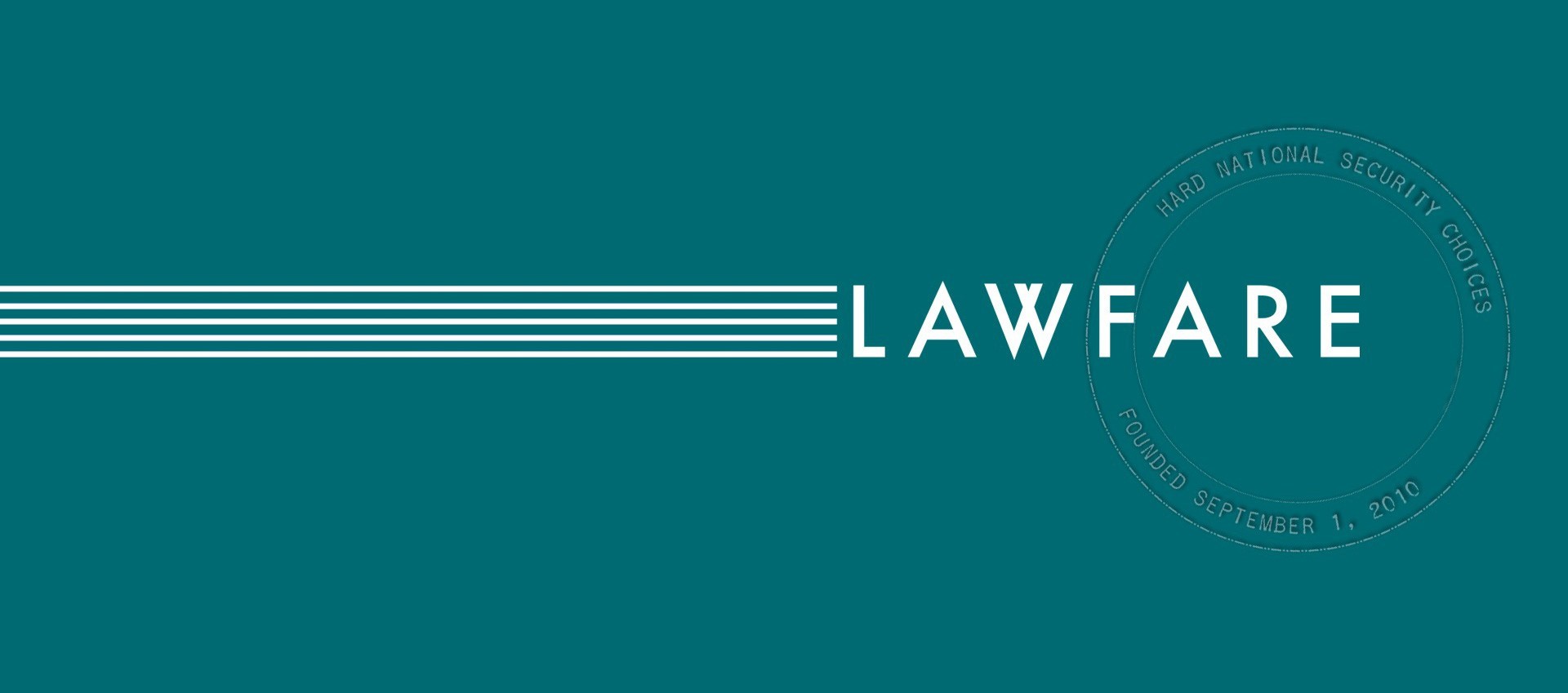Readings: Alan Rozenshtein on the NDAA and the President's Signing Statement
Lawfare's own Alan Rozenshtein has just published a short Note in the most recent Harvard Law Review explaining and critically discussing controversies surrounding the National Defense Authorization Act (NDAA) and President Obama's signing statement containing Constitutional objections to parts of the Act.
Published by The Lawfare Institute
in Cooperation With

Lawfare's own Alan Rozenshtein has just published a short Note in the most recent Harvard Law Review explaining and critically discussing controversies surrounding the National Defense Authorization Act (NDAA) and President Obama's signing statement containing Constitutional objections to parts of the Act. It is short and usefully explanatory; here is the SSRN abstract:
Despite the executive branch’s leadership in the war on terror, Congress has periodically passed legislation regarding military detention. Congress’s latest effort was the National Defense Authorization Act for Fiscal Year 2012 (NDAA), which it passed on December 15, 2011, and which President Barack Obama signed into law later that month. In addition to affirming and potentially expanding the President’s detention powers, the NDAA extends for another year restrictions on the President’s ability to transfer Guantánamo Bay detainees to the United States and foreign countries. Although President Obama signed the bill into law, he issued a signing statement criticizing the restrictions on both policy and constitutional grounds, arguing that they could in certain circumstances violate the separation of powers. Although flawed as policy, the NDAA’s detainee-transfer restrictions do not unconstitutionally infringe upon the President’s Commander-in-Chief or foreign affairs powers. Rather, the restrictions are a welcome assertion of Congress’s proper role in regulating wartime detention. (Number of Pages in PDF File: 8.)
Kenneth Anderson is a professor at Washington College of Law, American University; a visiting fellow of the Hoover Institution; and a non-resident senior fellow of the Brookings Institution. He writes on international law, the laws of war, weapons and technology, and national security; his most recent book, with Benjamin Wittes, is "Speaking the Law: The Obama Administration's Addresses on National Security Law."




